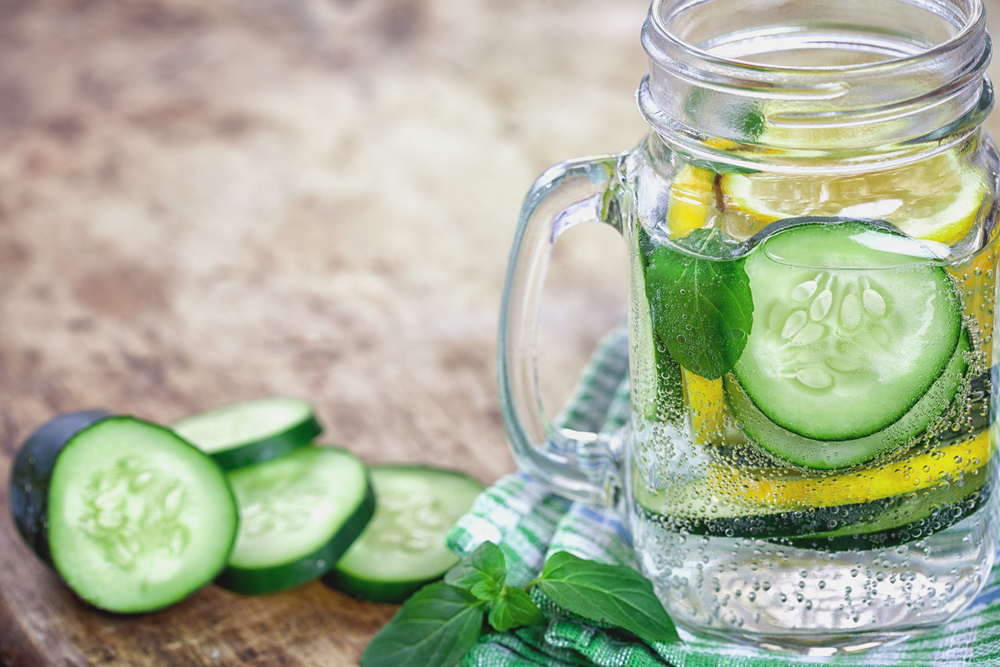By: Rebecca Mason, RD
With magazines, books and blogs promoting the clean eating trend, it can be confusing to break through the hype to understand what it means, and if and how to start.
The concept is actually quite simple: eat foods that are as close to their natural state as possible. This focus will shift your food habits toward limiting processed foods and consuming fresh foods instead.
Here are seven simple clean eating tips to get you moving in the right direction:
- Make your grains whole. A whole grain is a grain that contains all of its parts: the germ, endosperm and bran. Because of their minimal processing, whole grains contain more vitamins, minerals and fiber than their refined counterparts. In addition to having more nutrients per serving, eating whole grains has been linked to reduced risk of heart disease, certain cancers, respiratory disease, obesity and diabetes. Get the most nutrition from your grains and choose whole. Skip your usual trip to the salad bar and make this Warm Arugula and Bulgur Salad for lunch instead.
- Make water your drink of choice. The human body is about 60 percent water and water is essential for digestion, metabolism, regulating body temperature, cushioning joints, preventing brain and muscle fatigue and helping your kidneys clear toxins from the body. Avoid the additives in sugar-sweetened beverages and quench your thirst with water, whether it be sparkling, still or fruit-infused. Other good options for hydrating are unsweetened coffee or tea. Get some additional hydration by snacking on fruits and veggies with high water content throughout the day. Cucumbers, lettuce, zucchini, strawberries, tomatoes and watermelon are good choices.

- Eat a lot of plants. Plant-rich diets put an emphasis on fruits, veggies, whole grains, nuts, seeds, beans and legumes. This kind of eating pattern is associated with a lower chance of obesity, cardiovascular disease, hypertension, diabetes and a decreased cancer risk. By eating more plants and less processed food, you’ll be consuming less cholesterol, saturated fat and sodium, and more fiber, vitamins and minerals. Make plants the main event and serve this Lentil Shepherd’s Pie for dinner tonight.
- Limit added sugar and avoid artificial sweeteners. While sugar is a carbohydrate found naturally in many foods, like lactose in milk or fructose in fruit, many foods have added sugar to increase shelf-life and palatability. It has been estimated that the average American consumes more than 22 teaspoons of added sugars per day. That’s an extra 352 calories that have little to no benefit to our bodies. Research has shown that while artificial sweeteners are calorie-free, consumption of sugar substitutes is associated with higher incidence of metabolic syndrome and type-2 diabetes. Start by looking at the ingredient list on food labels. You’ll be surprised at how often sugar is added to our foods, even items you wouldn’t expect like bacon and deli meat.

- Eat locally. Choose foods that were produced locally. Not only will you be supporting local farmers, but you’ll be consuming the freshest, most nutrient-dense products possible. Visit a farmers market or look for items produced locally in the grocery store. The products that are in-season are also often less expensive since they didn’t have to travel thousands of miles to make it to your plate.
- Focus on fresh. Once a fruit or vegetable has reached its peak ripeness, we have a short window of time to eat it before it spoils, hence the advent of freezing and canning to preserve foods. Freezing and canning are a great way to get fruits and vegetables in our diet despite them being out of season or because of lack of availability, but these processes do alter the nutrient content of foods. In a study comparing the nutritional content of fresh and canned fruits and vegetables, vitamin C content was reduced between 62-90 percent for the canned varieties, and 17-61 percent for frozen products. Additionally, canned products tend to contain extra salt, preservatives or sugars, so choose fresh as often as you can to avoid the additives your body doesn’t need, and consume more of the vitamins that it does.

- Choose organic when you can. Organic farms must uphold certain practices to bear the organic seal, such as prohibiting use of certain fertilizers, pesticides and antibiotics. As such, organic products carry less pesticide residue and higher antioxidant content. In an analysis of 343 studies, it was found that organic products had 20 to 40 percent greater antioxidant content than those that were not organically produced. By making the switch whenever possible, you’ll get a greater nutrient boost, which has been associated with reduced risk of certain cancers and heart disease.
Get the most nutrition from your food budget and try implementing one or two of these tips for better health this week. You’ll not only start feeling the benefits, but it will lead to long-term health benefits as well.
About the Author: Rebecca Mason, RD, is a registered dietitian and health and wellness coordinator in the Wellness Department at Priority Health. She is passionate about helping families and individuals improve their health through nutrition education and nutritious food access. Rebecca is certified in adult weigh


